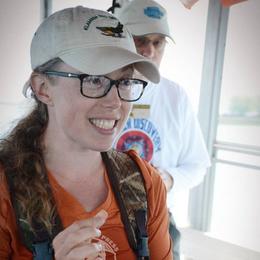The weather might still be brisk, but for waterbirds and early migratory songbirds February and March marks the beginning of spring migration across the Great Lakes region. During this period of great bird movement and inclement weather waterbirds are at risk of getting stranded, particularly in areas with large amounts of asphalt. Learn how you can keep waterbirds safe this season.
Waterbirds like Common Loons, Common Mergansers, and Pied-billed Grebes can crash land in parking lots, accidentally thinking the asphalt is a large body of water. The crash landing can injure the birds requiring medical attention from a licensed wildlife rehabilitator.
Birds that are lucky enough to not be injured in a crash landing will still find themselves stranded on land like parking lots. Waterbird legs, which are placed far back on their bodies, allow them to be incredible divers and swimmers in water but make them very awkward on land. They struggle to walk on land and require a large body of water to take flight. One species, the Common Loon, need up to a quarter mile of open water to take flight, and can even become trapped in a small body of water.
If you encounter an injured or grounded waterbird, use Animal Help Now to be connected to a local licensed wildlife rehabilitator. Please do not attempt to rescue the bird on your own. To prevent harm and injury to the bird or yourself wildlife rehabilitators recommend having the following supplies in your car:
- Eye protection, a jacket and thick gloves.
- A large towel, jacket or blanket to wrap the beak with and keep the wings together to prevent injury to the bird or handler.
- Rubbermaid containers with air holes for transport to a wildlife rehabilitator.
ABOUT MI BIRDS







